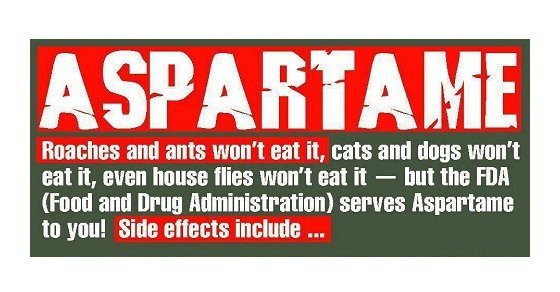Aspartame, a synthetic sweetener that has been a staple in diet foods and beverages for decades, continues to spark debate about its safety and health implications. This artificial sweetener, first synthesized in 1965, has become ubiquitous in modern food and drink products, from diet sodas to sugar-free chewing gum.
Understanding Aspartame: More Than Just a Sweet Substitute
At its core, aspartame is a chemical compound made from two amino acids: aspartic acid and phenylalanine. Marketed under brand names like NutraSweet and Equal, it provides a sweet taste with virtually no calories, making it attractive to those watching their weight or managing diabetes.
The journey of aspartame began when chemist James Schlatter accidentally discovered its sweet properties while working on a drug to treat ulcers. Since its FDA approval in 1981, it has become one of the most widely used artificial sweeteners globally.
The Complex Health Landscape of Aspartame
Recent research has brought significant attention to the potential health impacts of aspartame. In July 2023, the World Health Organization’s International Agency for Research on Cancer (IARC) classified aspartame as a “possible carcinogen,” sending shockwaves through the food industry and health community.
Key Health Considerations
- Potential links to liver cancer in long-term consumption studies
- Possible metabolic syndrome implications
- Ongoing debates about insulin regulation and metabolic responses
The NIH-AARP Diet and Health Study and the NutriNet-Santé cohort study have provided valuable insights into the long-term effects of aspartame consumption. While definitive conclusions remain elusive, these studies highlight the need for continued research.
Regulatory Landscape and Safety Standards
Despite recent concerns, regulatory bodies like the FDA and JECFA (Joint FAO/WHO Expert Committee on Food Additives) maintain that aspartame is safe when consumed within recommended limits. The current acceptable daily intake (ADI) is set at 40 mg per kilogram of body weight.
Where Aspartame Lurks
Aspartame is not just in diet sodas. You might be surprised to find it in:
- Chewing gum
- Yogurt
- Ice cream
- Medications
- Toothpaste
- Sugar-free candies
Debunking Common Myths
Despite widespread misconceptions, scientific evidence does not support many popular claims about aspartame. For instance, the notion that it directly causes cancer has been repeatedly challenged by comprehensive studies.
Important Nuances to Consider
- Individual metabolic differences play a significant role in how aspartame is processed
- Moderation is key in consumption
- People with phenylketonuria (PKU) should avoid aspartame entirely
Making Informed Choices
While the debate continues, consumers are advised to:
- Stay informed about the latest research
- Consume aspartame in moderation
- Consider natural alternatives when possible
- Consult healthcare professionals about individual dietary needs
As research evolves, our understanding of aspartame will undoubtedly become more nuanced. What remains clear is the importance of continued scientific investigation and maintaining a balanced, informed perspective on this controversial sweetener.






